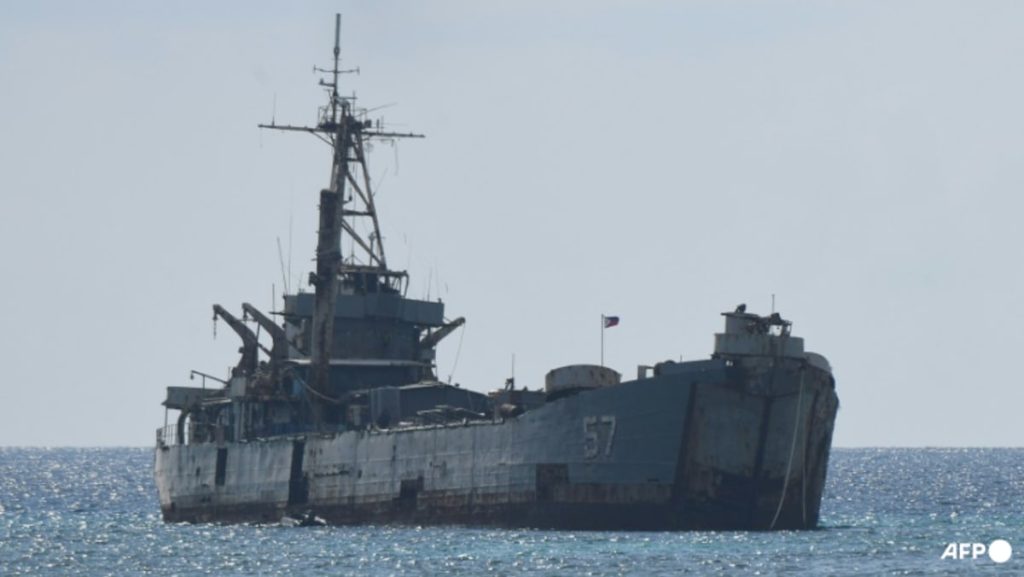President Ferdinand Marcos of the Philippines emphasized the nation’s stance in territorial disputes, stating that they cannot yield in conflicts with China over parts of the South China Sea. The strategic waterway is crucial for global trade, and tensions have been escalating between the two countries. Marcos assured that the Philippines will work to de-escalate tensions while still standing firm on their principles and positions in the disputed areas.
The Philippines and China recently reached a provisional arrangement for resupply missions to Filipino troops stationed at Second Thomas Shoal, where violent clashes have taken place. Beijing claims a large portion of the South China Sea and has been actively asserting its dominance by deploying coast guard and other vessels in the disputed waters. The territorial disputes have strained relations between the two countries, with fears of potential conflict that could involve the United States due to their mutual defence treaty with Manila.
Since taking office in 2022, President Marcos has been vocal about defending the Philippines’ claims in the South China Sea, leading to ongoing tensions with China. Clashes between Philippine and Chinese vessels at contested reefs have heightened concerns about a potential military confrontation in the region. The mutual defence treaty between the Philippines and the United States obligates both parties to support each other in case of an armed attack on vessels, aircraft, military, and coast guard operations in the Pacific theatre, including the South China Sea.
As tensions continue to escalate in the South China Sea, both the Philippines and China are working to find ways to prevent further conflict while maintaining their respective interests in the disputed areas. President Marcos reiterated during his State of the Nation address that the Philippines cannot back down from their territorial claims and must stand firm in the face of mounting pressure. The ongoing standoff between the Philippines and China in the South China Sea underscores the complexities of territorial disputes in the region and the potential for broader geopolitical implications.
With trillions of dollars worth of trade passing through the South China Sea annually, the issue of territorial disputes in the region has far-reaching consequences for global commerce and security. The actions of countries like the Philippines and China in asserting their claims in the strategic waterway have raised concerns about the stability and peace in the region. As both nations continue to navigate the complex dynamics of territorial disputes in the South China Sea, the international community watches closely to see how the situation will unfold and whether efforts to de-escalate tensions will be successful.
President Ferdinand Marcos’ firm stance on territorial disputes with China reflects the Philippines’ commitment to upholding their claims in the South China Sea. The ongoing clashes and tensions in the region highlight the challenges and risks involved in managing conflicting interests in the contested waters. It remains to be seen how the Philippines, China, and other stakeholders will address these disputes and work towards peaceful resolutions that safeguard regional stability and security in the South China Sea.


